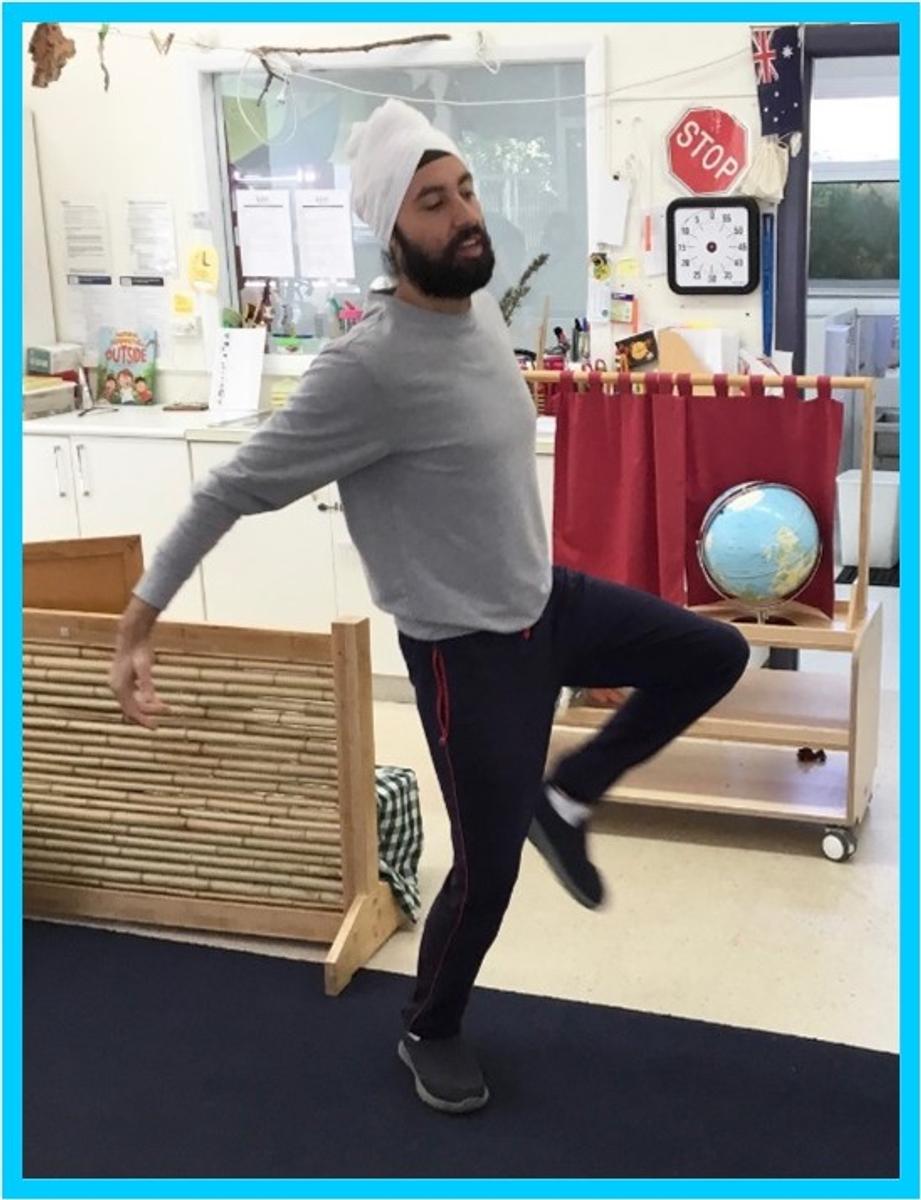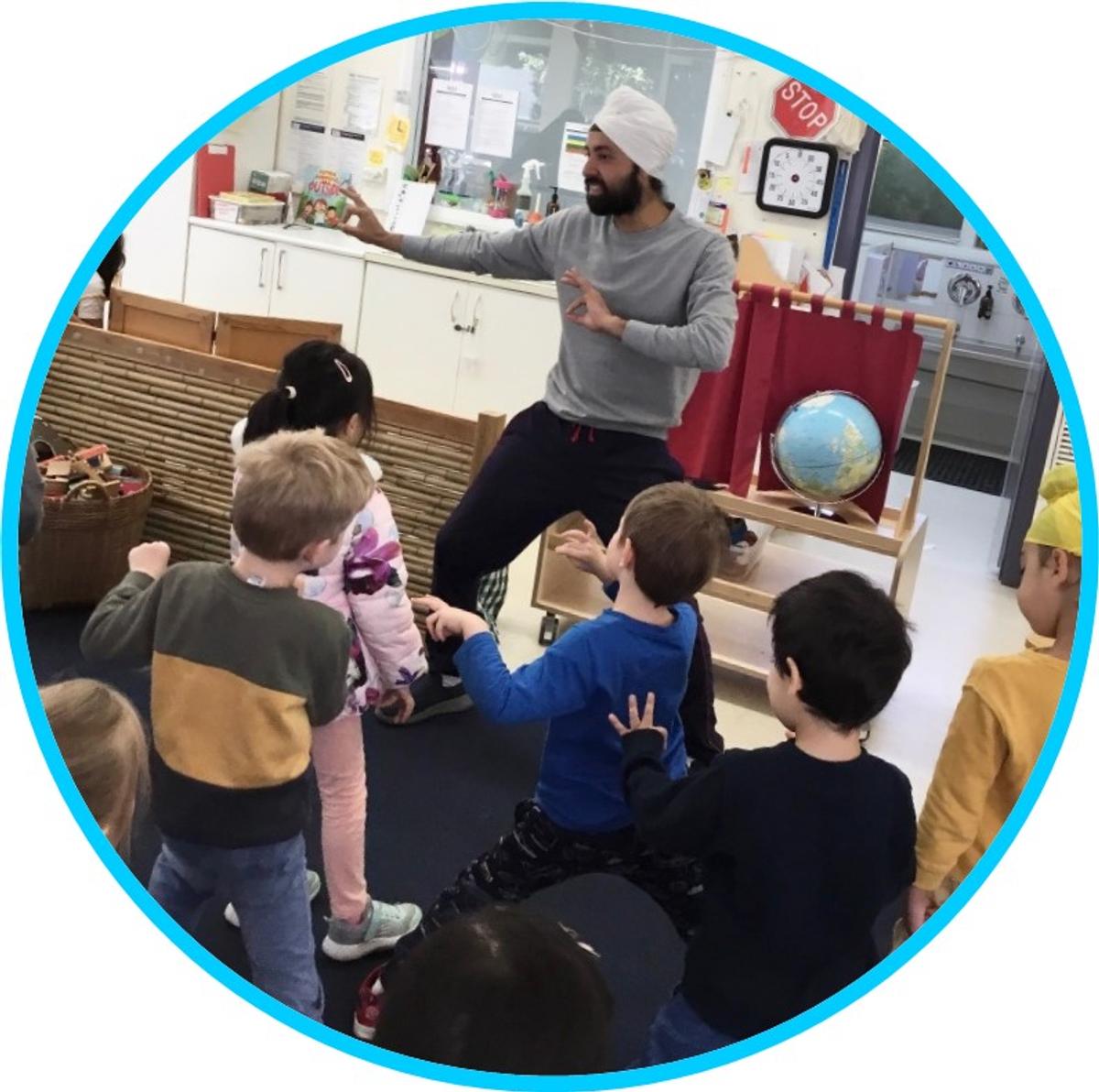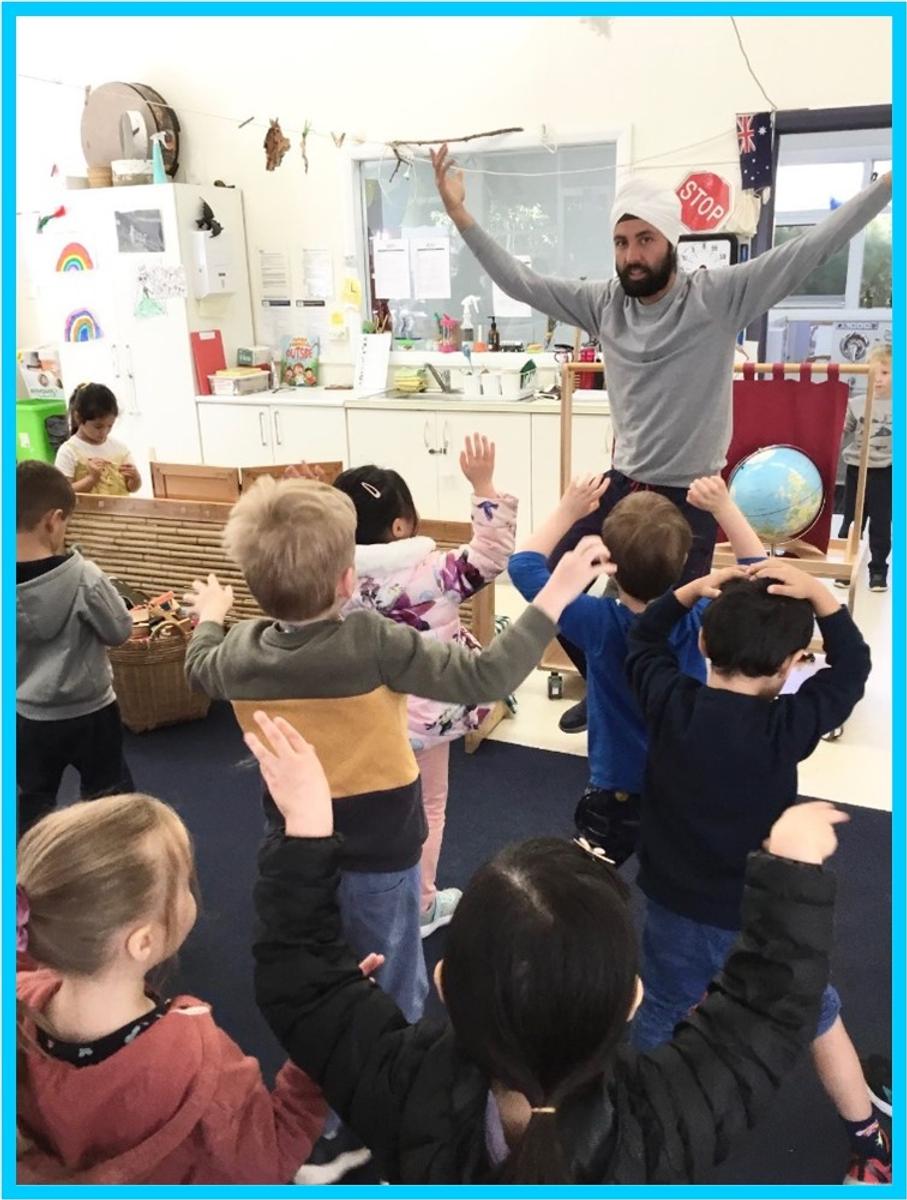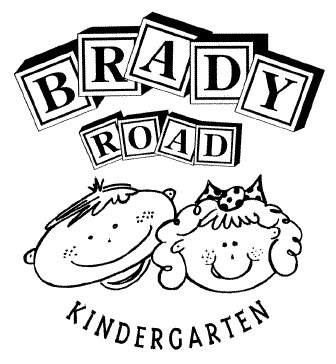GEKA Brady Road
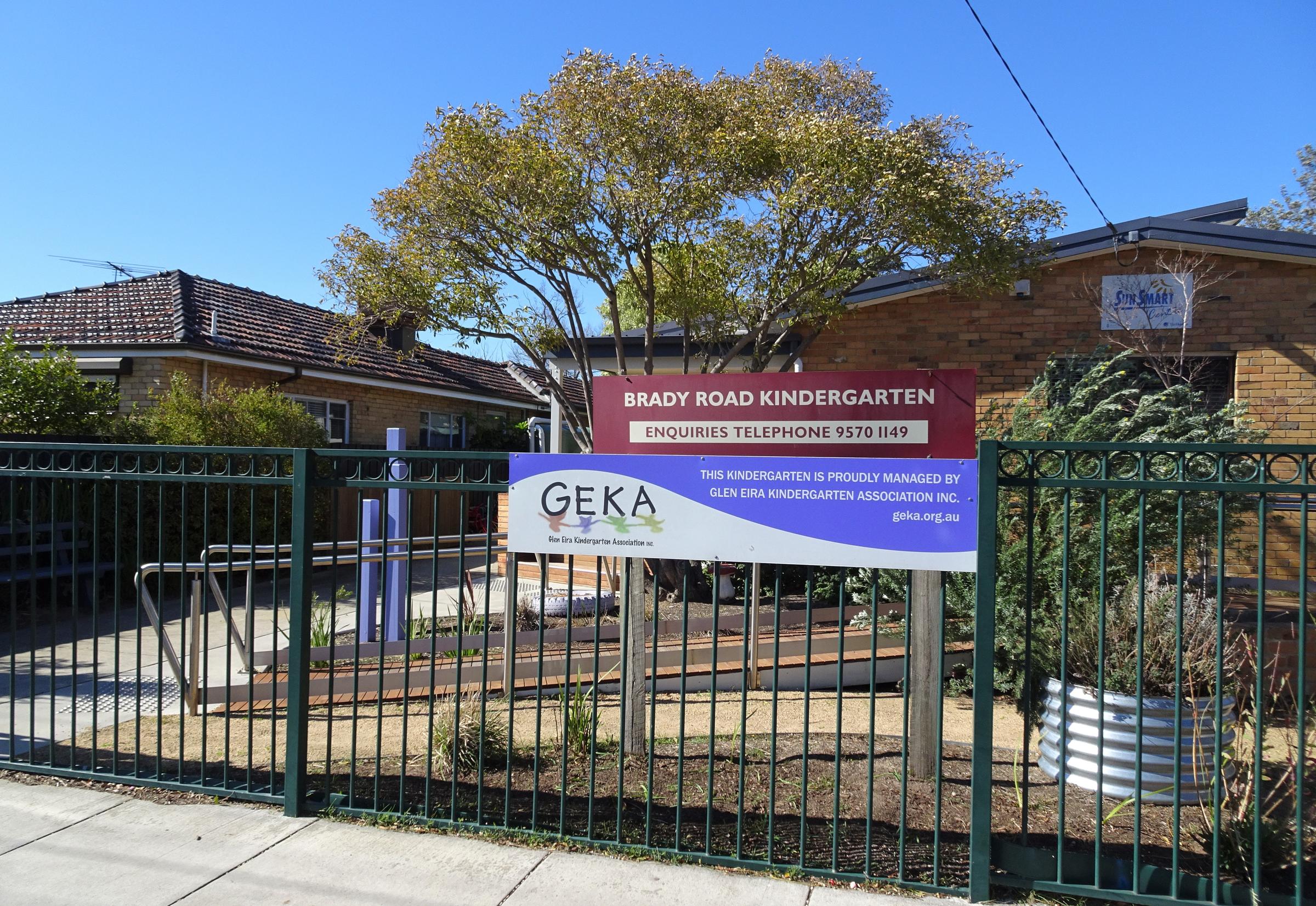
Exploring Diversity, Culture and Heritage
Kate Seeman, Early Childhood Educator
At GEKA Brady Road Kindergarten, educators plan experiences and provide resources that broaden children’s perspectives and encourage appreciation of diversity.
We encourage children to listen to others and to respect diverse perspectives. We explore culture, heritage, backgrounds and traditions within our kindergarten community.
Today Anhad’s Dad, Singh came for a visit to teach our group about the Punjabi culture with the children. We all learnt a Punjabi dance. The Punjabi music was unique, fast and slow.
Singh told us a lot of information about the wearing of the Turban and about keeping hair long and why. They believe nature has gifted them their hair, so they don’t want to change that. The turban helps to keep their hair tidy and also protects it.
Anhad was born in India. He came to live in Australia with his Mum and Dad. They speak Punjabi at home! They say Namaste to say hello!
This prompted a discussion about what other languages our friends at Kindergarten speak at home.
Audrey – Mandarin
Aria & Olivia – Greek
Leo & Jack – Hebrew
Zoe – Portuguese
Nikan – Farsi
Ava – Mandarin
Olympia Tof. - Italian
Singh did some exercises with us too. First we started of with jumping 10 times. Then we went onto arms up and jumping another 10 times. After that, It was arms up and squats, followed by fast star jumps. To finish off, some bending and stretch down to the toes with a some light jogging on the spot, fast and slow. Engaging is physical activity is an importnat part of our program and keeps our bodies fit and healthy.
Punjabi food - roti is a round, flat bread, it is eaten with curry or sometimes stuffed with potatoes. Anhad’s family is vegetarian. That means they don’t eat meat. Leo’s family is also vegetarian! Leo said you can squeeze lemon on to the roti!
Bhangra is the name of the Punjabi dancing and a Dhol is a bongo drum for the Punjabi culture!
Children are connected with and contribute to their world. Children respond to diversity with respect. Noticing and reacting in positive ways to similarities and differences among people. (Link to the Early Years Learning framework: Outcome 2: )

